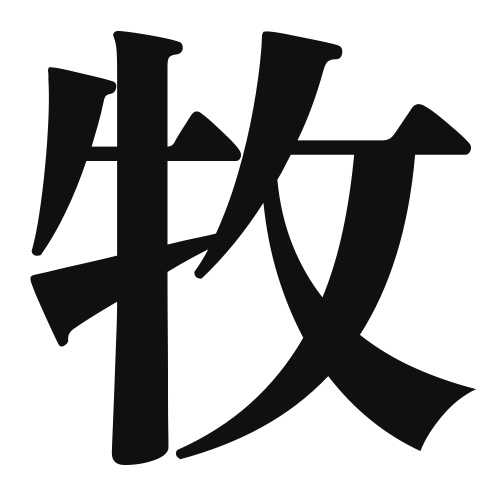1. Overview of Meaning
The kanji “牧” (maki) primarily means “to graze” or “to raise livestock.” It is often associated with pastoral activities and farming, particularly in relation to cattle and sheep.
2. Formation and Radical
Formation of the Kanji: The kanji “牧” is a compound character (会意文字) that combines elements representing both the act of raising animals and the concept of a pasture.
Radical: The radical for “牧” is “牛” (ushi), which means “cow” or “ox,” indicating its connection to livestock.
3. Examples of Usage
Common Words and Phrases:
- 牧場 (bokujou) – ranch or pasture
- 牧師 (bokushi) – pastor or minister
Example Sentences in Daily Conversation:
- 彼は牧場で牛を育てています。 (Kare wa bokujou de ushi o sodateています.) – He raises cows on the ranch.
- 牧師は教会で説教をします。 (Bokushi wa kyōkai de sekkyō o shimasu.) – The pastor gives a sermon at the church.
4. Synonyms and Antonyms
Similar Kanji:
- 養 (yō) – to nurture or raise, which has a broader meaning that includes various types of care beyond just livestock.
Antonyms:
- 殺 (satsu) – to kill, which is the opposite of raising or nurturing animals.
5. Cultural and Historical Background
Connection to Japanese Culture: The concept of “牧” is deeply rooted in Japan’s agricultural history, where livestock farming has played a significant role in rural life.
Proverbs and Idioms:
- 「牛に引かれて善光寺参り」 (Ushi ni hikarete Zenkoji mairi) – This proverb means “to be led by a cow to visit Zenkoji,” which implies that sometimes unexpected events can lead to positive outcomes.
